There’s a packed Democratic field running for 3 at-large Mecklenburg commissioner seats
Eight Democratic candidates, including incumbents Pat Cotham and Ella Scarborough, will vie in the March primary for three at-large Mecklenburg County commissioner seats. No Republicans filed to run for the at-large spots.
Trevor Fuller, the third at-large incumbent commissioner, is running for U.S. Senate.
The only other primary for county commissioner is in District 3, currently held by Chairman George Dunlap, a Democrat. His challenger is Cade Lee, a UNC Charlotte student.
In fiscal year 2020, the Mecklenburg Board of County Commissioners — which also includes six representatives elected by district — approved a $1.9-billion budget, allocated across affordable housing, social services, public health, parks and greenways, and Charlotte-Mecklenburg Schools, among other initiatives. Many of those budget priorities seem under-funded, according to more than 3,000 residents who responded to a recent Mecklenburg County budget survey for fiscal year 2021.
Commissioners had adopted their budget, representing a $160 million increase from the previous fiscal year, following the 2019 county property tax hike.
The eight at-large candidates are:
Leigh Altman, a public-interest attorney.
Pat Cotham, a longtime commissioner with professional experience in sales, management and executive search.
Tera Long, a grassroots organizer and former teacher.
Tigress McDaniel, a consultant with experience in environmental science.
Ray McKinnon, a pastor and president of the South Tryon Community Development Corporation.
Ella Scarborough, a longtime commissioner and former chair of the county commissioners.
Lloyd Scher, a former commissioner from 1992-2000.
Brenda Stevenson, a philanthropist and local activist.
Scarborough and Stevenson did not respond to a Charlotte Observer survey for this story.
Affordable housing crisis
There’s an estimated deficit of 34,000 affordable housing units in the Charlotte area.
While all candidates recognize the urgent need to aid lower-income residents, they disagree on possible solutions — namely, a combination of physical housing stock, comprehensive social services and shared resources with the city.
McKinnon said Mecklenburg will not build its way “out of this crisis,” especially with steep population growth.
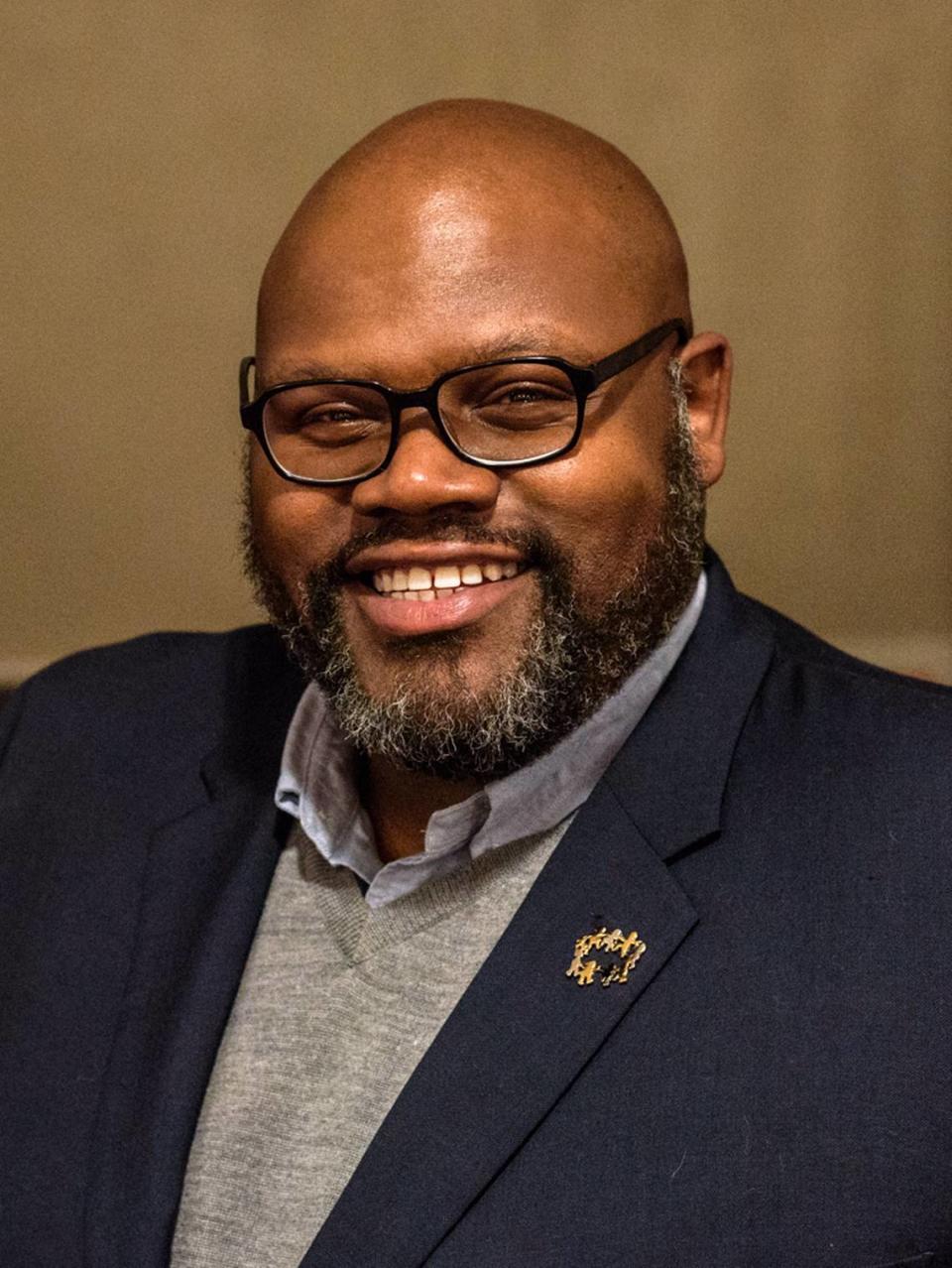
One option, McKinnon suggested, is to assuage the costs developers encounter within the affordable housing market.
“Where we can offer relief or incentives to, effectively, reduce property taxes on developers who are building affordable units — specifically for those at or below thirty-percent of the area median income, must be considered,” McKinnon wrote in response to the survey. “But if there are tax-relief incentives, we must have a claw-back if those affordable units aren’t kept affordable for at least a decade.”
Cotham said the county must do a better job of identifying root causes and then proactively preventing problems, such as financial literacy, mental well-being and eviction policies.
“Rental subsidies are so helpful to neighbors who have worked to get into safe housing,” Cotham wrote. “Data shows that if a person or family is in stable housing — the result is less need for services and a higher standard of living and more success for their children.”
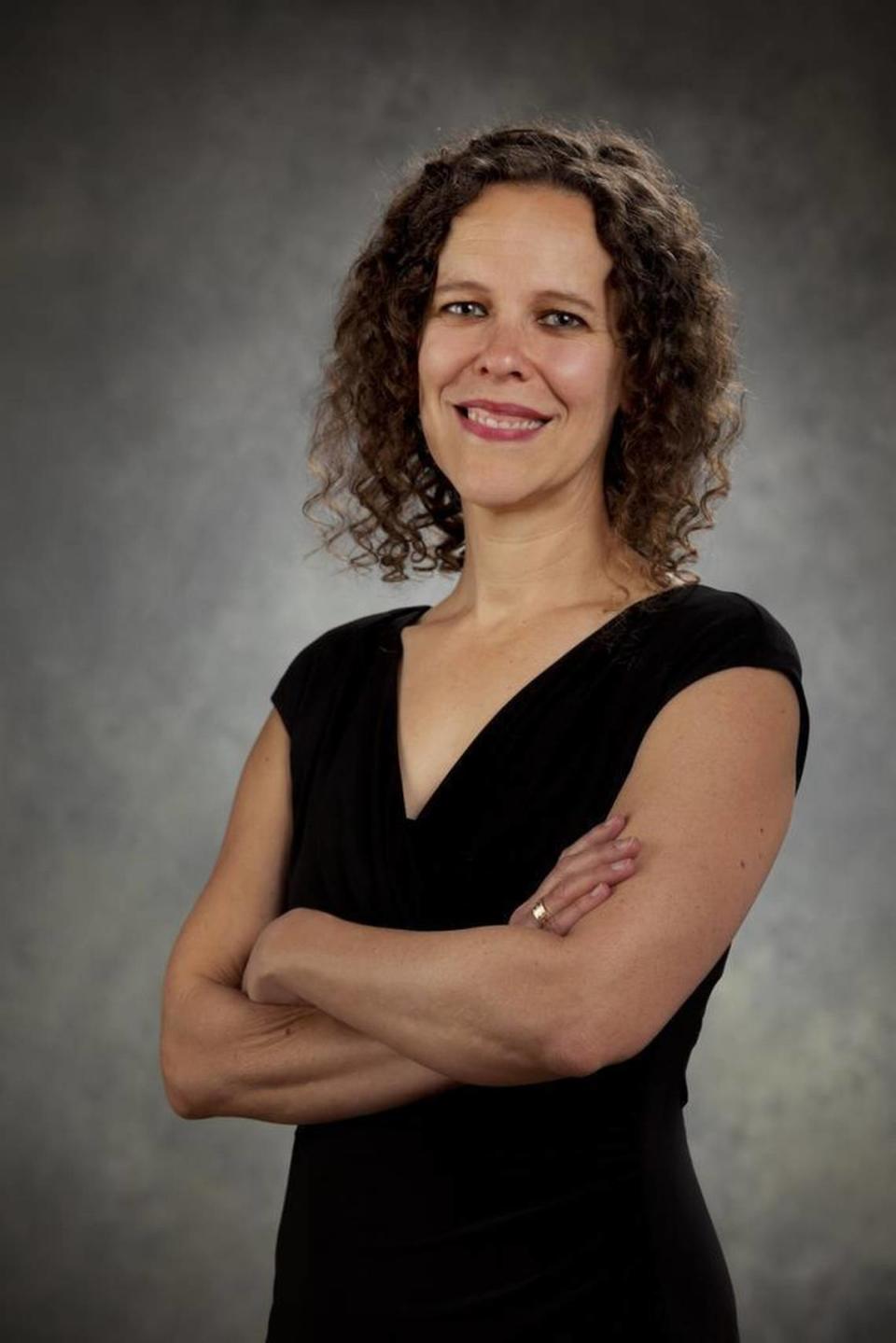
But Tera Long said she believes that rental subsidies “represent a temporary solution to a long-term problem.”
“The (county commissioners) should carefully analyze how other successful places, including large cities, are addressing it and develop a master plan of execution,” Long wrote. “What’s clear is that the market alone won’t solve this growing problem and local government must incentivize the building of low-cost housing. “
Lloyd Scher, alongside other candidates, advocated for increased collaboration with city and nonprofit partners to combat the affordable housing crisis.
Leigh Altman, a political newcomer who substantially outraised her opponents, said commissioners should focus on increasing residents’ household wealth and purchasing power.
“The County should significantly scale-up efforts to train and connect adults who are ready to work to good-paying jobs in tech, skilled trades, and healthcare — among other hiring industries — with labor shortages in our region,” Altman wrote.
Public support for arts funding
At-large candidates are divided over Mecklenburg’s responsibility to support the arts after the failed quarter-cent sales tax last November.
Some candidates say taxpayers shouldn’t bear the burden for the arts, arguing that a number of county services are also under financial strain.
“Given the County’s responsibility for critical safety-net social services, CMS funding, our long-neglected parks, as well as other essential priorities, solving the long-term financial plan for our arts community may require a deeper commitment from both the business community and the City,” Altman wrote.
But other challengers counter that without a vibrant arts and cultural scene — and the county’s backing — residents will suffer from associated benefits, including economic growth.
Cotham is a proponent of giving funds to specific arts groups — a framework that would give the county better oversight and control of taxpayer dollars, she said.
“Adding small grants for smaller groups would benefit them so much,” Cotham wrote. “There are many ways we could make a difference without spending $20M a year as the tax would have done.”
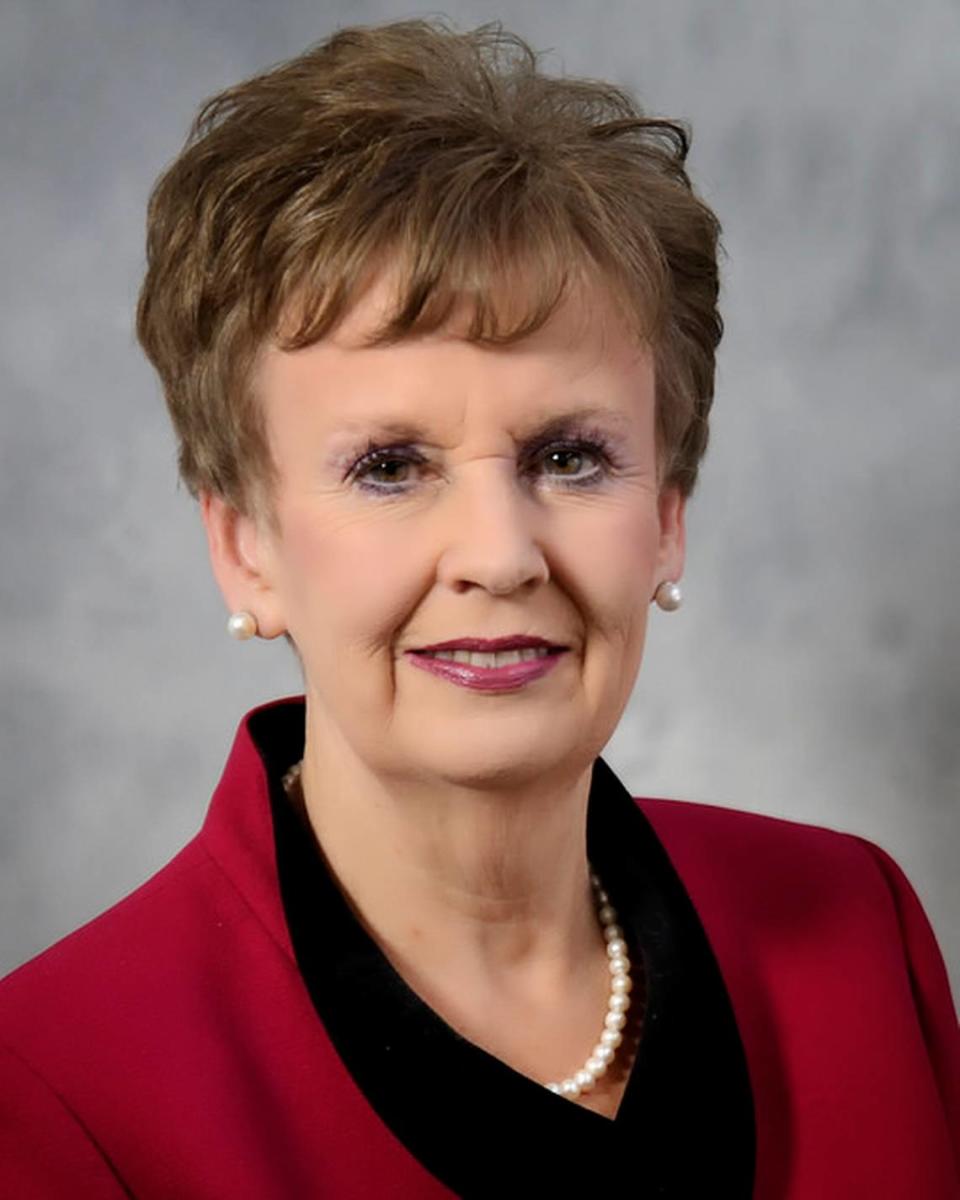
McKinnon has a similar philosophy that stops short of fully funding local arts organizations.
“The county (and other municipalities) should offer funds to help private non-profits meet any funding gaps,” McKinnon said. “The County must also ensure that smaller organizations which are local-artist led have access to public funds.”
Long said she does not favor raising taxes “on our hard-working citizens.” But Long said she would support creating county-funded meeting spaces.
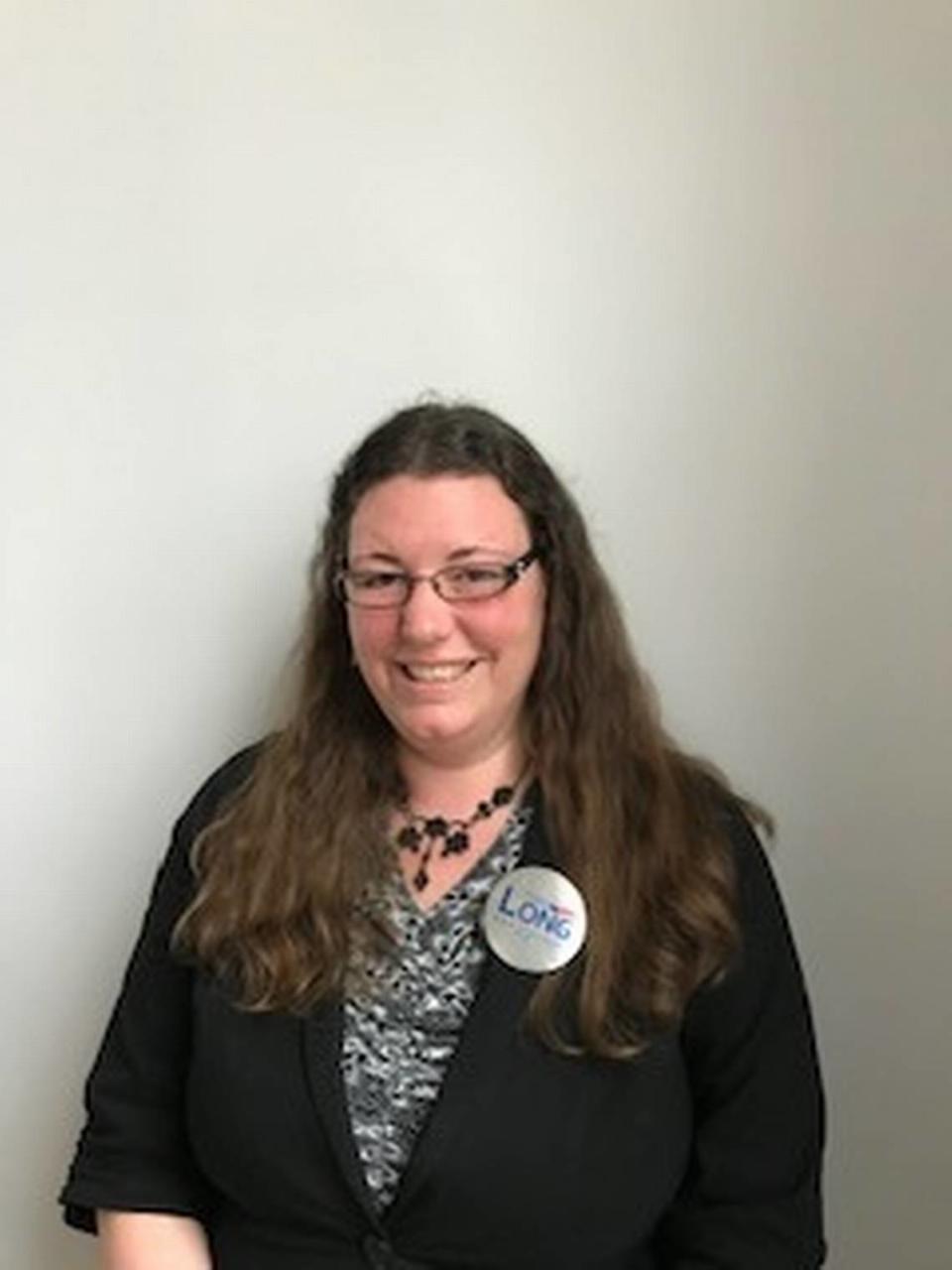
“Such spaces could provide a community gathering place where local artists could promote and sell their work,” Long wrote in her survey response.
Scher said a strong arts and parks community is critical for making the Charlotte region “sustainable and livable.” He said that a future sales tax referendum must be transparent to voters.
“We need to go back to the voters of Mecklenburg and this time outline exactly where the money will be spent...” Scher wrote. “It is imperative we rebuild the public trust to help get bonds (passed).”
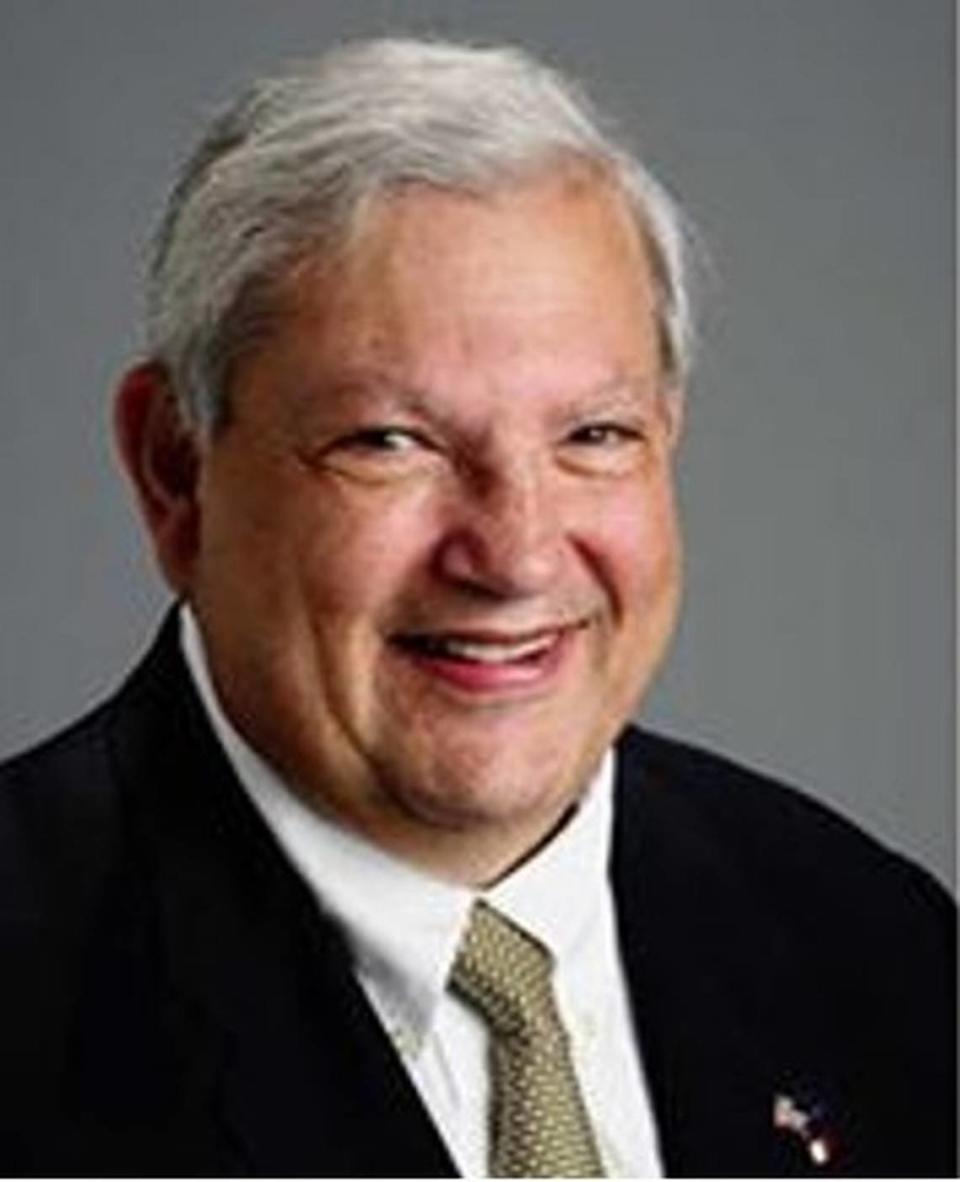
Looking ahead to November
Two Democratic county commissioners — Vilma Leake, of District 2, and Mark Jerrell, of District 4 — are running unopposed.
Democrat Elaine Powell, vice chair of the county commissioners, will defend her District 1 seat in north Mecklenburg against Jim Puckett, the former incumbent.
District 5 in southeast Charlotte is open after Susan Harden, a major proponent of the sales tax referendum, announced she wouldn’t seek re-election. Democrat Laura Meier, a former CMS teacher, faces Republican Matthew Ridenhour, the former incumbent.
And in District 6, in south Mecklenburg, Democratic incumbent Susan Rodriguez-McDowell is running against Republican Joel Levy, an attorney, this November.
Click a candidate's name to read an explanation to his or her answer.
What should be the role of the county — which allocates $22 million for affordable housing — in closing the affordable housing gap and promoting other initiatives, such as rental subsidies?

Lloyd Scher
We need to work closely with the city of Charlotte and create safe and affordable housing. There are nonprofit organizations like Crisis Assistance Ministry that can help by providing the costs of deposits and the first and second months; rent to help individuals obtain housing. I am familiar with the old Section 8 program and if it is still available we should work with the federal government to provide help with our citizens. I am not sure if those programs are still available with the federal government. If not we should be looking into creating a similar program in Mecklenburg.

Patricia "Pat" Cotham
Since being elected in 2012, I realize that issues are more complicated than they seem. I have long advocated for the county to become more involved with housing as the current situation is dire and I do not believe the city can do it alone. We must help. Often we react to problems, but I think we need to also try to prevent problems. Our Health Department through the Village Heartbeat Program is doing a great job preventing chronic health problems. We need a comparable program for housing. We have a dire need in housing our neighbors who earn 30% of the area medium income (AMI). We have 27K in that category. In a "perfect world" it might make sense to build housing with different financial levels, but we have an enormous amount of people at the lowest level and we are not responding aggressively enough. I think we can do many things. First, we can donate funds to help the city with their funding. We have done that and we need to continue. But we also need to identify root causes and increase our efforts to prevent evictions and other serious matters leading to homelessness. We need to talk more to the state to get them to change policies on evictions and leasing that unfairly hurt low-income residents. We need more classes on budgeting, financial literacy and caring for a home/apartment. Rental subsidies are so helpful to neighbors who have worked to get into safe housing. Data shows that if a person or family is in stable housing the result is less need for services and a higher standard of living and more success for their children. Too many of our people are so stressed about housing and lack thereof. We have to "attack" this problem from many different angles. Social workers also need to be able to Identify mental health issues that also add to the securing of stable housing. Finally, we should not blame developers -- it happens too often. They are in business to make money; they are not social workers. But many want to help! We need to help them "make the numbers work" by assigning them special inspectors who show-up quickly to save them funding on the project. Many Faith Communities want to help in different ways and we need someone to engage them for better results. This is an "all hand on deck" project. We can do it!

George Dunlap
It is the responsibility of the County Commission to support families. Providing all of the supportive services we provide won’t mean much if the families are not in a stable environment. Affordable housing is a community problem and one way we can help improve the condition of our community is by helping to close the affordable housing gap to include providing rental subsidies, setting an affordable tax rate, offering tax breaks to seniors, along with other initiatives that support homelessness.

Cade Lee
The Mecklenburg Board of County Commissioners (BOCC) must be proactive in affordable housing and economic mobility opportunities. Rather than being reactive once residents are homeless, we must strengthen our economic mobility programs and job opportunities; guarantee legitimately affordable housing options; and invest in community development to end the cycle of homelessness and economic disparities. We must continue the expansion of rental subsidies and affordable housing vouchers, while taking a comprehensive approach to work with CMS and community partners to end youth homelessness; provide adequate funding to end 'school lunch debt' and let families send their kids to school without obstacles; and ensure proper funding and opportunities for our elderly residents such as expansion of Aging in Place to reach veterans, families, single parents, and a broader age range. We cannot look at affordable housing without talking about economic mobility, as residents do not become homeless or impoverished spontaneously. The BOCC must work with the community and private partners to guarantee: affordable housing options for residents earning under 30% AMI; an end to predatory real estate and developer behaviors that lead to gentrification; and equitable economic development and commercial development across Mecklenburg to ensure job and financial security to all residents. When elected, I will form partnerships with businesses and developers dedicated to growing communities, not those growing their bank accounts to the detriment of low-income communities. We must invest in environmentally sustainable housing with companies like ICAST, which reduces our carbon footprint, the environmental impact of multi-family housing, and provides green jobs. By investing in solar, green housing, and multi-family housing, we reduce economic mobility gaps, provide for traditionally underserved communities and we show our commitment to people and the planet over profits.

Leigh Altman
The lack of affordable housing is one of voters' top priorities across the county. Although affordable housing historically has been in the wheelhouse of the city, this current County Commission has made new investments in shelters, home repair programs, and the establishment of a rental subsidy program. I strongly support this, and I believe the county should use every opportunity to increase affordable housing stock. That being said, the county remains responsible for public health, mental health, welfare, education, and the environment. These are core functions for which the county is chiefly responsible at the local level, and we have some severe gaps in funding for these critical priorities. In the housing crisis, in addition to working to increase affordable housing units, I think it is also important to focus on ways to increase the household wealth of our residents and their purchasing power. The county should significantly scale-up efforts to train and connect adults who are ready to work to good-paying jobs in tech, skilled trades, and healthcare - among other hiring industries - with labor shortages in our region.
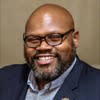
Ray Shawn McKinnon
The reality is that we will not build our way out of this crisis. While our population has grown by 22% from 2007-2017, according to a study by UNCC, new units only increased by 14%. We aren't building even as fast as our population growth; we are growing faster than we can even build units. This doesn't even take into account the other factors which contribute to the housing crisis--namely, wages. In the purview of the commission, it is important to constantly consider the trickle-down costs of fees associated with development and permitting. Where we can offer relief or incentives to, effectively, reduce property taxes on developers who are building affordable units--specifically for those at or below 30% of the area median income, must be considered. But if there are tax-relief incentives, we must have a claw-back if those affordable units aren't kept affordable for at least a decade.

Tera Crumbley
The county should assume a leadership role and form an intergovernmental committee including BOCC, the City Council and legislators. Grassroots organizers and businesses should be given a seat at the table. They need to discuss the problems the people face holistically, consider all pooled resources available, discuss all working models and analyze their success. Lack of quality public transportation, for example, makes it more difficult for many to access affordable housing. Carefully analyze how other successful places, including large cities, are addressing it and develop a master plan of execution. What's clear is that the market alone won't solve this growing problem and local government must incentivize the building of low-cost housing. On the other hand, I am convinced that rental subsidies represent a temporary solution to a long-term problem. One creative idea that has been raised to specifically address homelessness, is to convert vacant facilities into sustainable long-term housing. I am also impressed with the model that the Men’s Shelter utilizes. Men live at the shelter for a while and then can move into an apartment style building. The men are required to pay in 30% of their income. Concerned people in our community have found some good, working solutions in our city, but it just is not enough. Finally, we need to incentivize teachers and develop and provide world class education broadly so we can build strong middle class instead of just leaving people behind and scrambling to survive.
In light of recent developments at Charlotte-Mecklenburg Schools, including a change in top leadership and scrutiny over a faulty security system, what responsibility do commissioners have in overseeing how county taxpayer money is used within the school district?

Lloyd Scher
When I was a county commissioner I was able to create an earmark to provide teachers with increase in their summer supplement. I would like to study if we can do something similar to make sure the money goes to budget request by the school board. I would like to review each line item of the school board's budget request like we do the county budget. I would like to arrange quarterly meetings reviewing how the money given by the county is being properly spent. We can no longer just give money to the school board as a blank check without making sure it is being spent correctly. It is like the bond money we have given them in the past and it is not used to build the schools, which was requested and then we learned the bond money was shifted to another project. We have a fiduciary responsibility to the public to make sure the money is being spent wisely and for the purpose it was intended.

Patricia "Pat" Cotham
Since 2012 I have heard commissioners complain that the state does not give us authority to oversee where our CMS funding is applied and whether it was diverted from their budget requests. It would help build trust if we knew exactly how the funds of the people are used. I think it is unfortunate that CMS must do their budget before they know what funds they will receive from the state. I wish the county and CMS would do our budgets like the state: every two years with minor tweaks in the other year. Then we would be "on the same page" with funding. It would also result in less “finger pointing” and more collaborative solutions.

George Dunlap
There have been changes in both the leadership of the school system and leadership on the school board. Both boards are working together to improve the relationship between the two boards, as well as improve accountability. The County Commission has no direct supervision of the school board, which is directly accountable to the citizens, just as the County Commission is. We are a funder of the school system; therefore, it is in the best interest of both boards to have a good working relationship so that collectively we can address the educational concerns of our community.

Cade Lee
For too long, Mecklenburg residents have tolerated a lack of accountability and lack of transparency in regards to the county budget, including the largest recipient of county funds: Charlotte-Mecklenburg Schools (CMS). The Mecklenburg county commissioners can no longer sign over a $690.9 million check to CMS without discretion, oversight and proper public input. The Board of County Commissioners (BOCC) must engage in a transparent and accountable budget process, unlike what was done in 2019 for the FY 2020 Budget. The District 3 incumbent and Chairman broke the NC Open Meetings Law by cutting the public out of the process and facilitating secretive emails and closed-door meetings. In regards to the CMS budget, commissioners must implement a series of requirements for CMS and the budget requests prior to signing off on a multimillion dollar budget. The BOCC must be proactive in protecting our children, teachers, and staff of all Charlotte-Mecklenburg Schools. We must invest in easy-to-use door barricade mechanisms for every classroom door (as deToledo High School in West Hills, CA did). We must strengthen partnerships with CMPD, the Sheriff’s department, and school administrators to guarantee consistent school security plans. As District 3 County Commissioner, I will pursue partnerships with reproductive healthcare facilities to implement Sexual Health and Well-Being Centers in CMS schools (as L.A. County Schools have done) to better facilitate mental and reproductive healthcare access. Programs like these provide contraceptives, STD screenings, and sexual health education to students who might not normally have access. As a county commission, we must guarantee increased teacher pay and teacher supplements; funding, support, and resources for our existing public schools; equity, accessibility, and parent-district cooperation for all students with special needs or disabilities; and equitable course offerings, support systems, and opportunities for every student -- no matter their zip code. I know far too many parents of disabled children who have not had the support they deserve from CMS. All of the problems with equity, accountability, and transparency with CMS begin with the check the BOCC writes during each budget process. I refuse to sign off on a budget for CMS without a detailed plan provided to the BOCC and the public which explains budget priorities, equity plans, school safety improvements, and resource allocations. If CMS wants the next BOCC to sign off on a budget of more than $690.9 million, residents must know the budget priorities of CMS and must be provided with an end-of-year report of where the money actually went.

Leigh Altman
All of our governmental bodies must be transparent and accountable to our residents for policy decisions and taxpayer expenditures. I have high hopes that the new superintendent will correct the mistakes of his predecessor, and we need to give him a chance to do that. Equally important, residents need a school board, City Council, and County Commission operating in close collaboration with interlocking services. A child cannot succeed if she does not have access to high-quality education in our county schools (a school board function). But even if she has a good school, her trajectory will be curtailed if her parent or guardian cannot access employment due to lack of housing or a decent transportation system to get to work (a city function). If her family has no access to healthcare, mental health services, parks, recreation, and a range of supportive services for adults, children, and at-risk populations, her caregiver may not be able to maintain the job or keep the house which keeps her in her school (a county function). In short, the three legs of local government - the school board, the city, and the county - must work closely and collaboratively for our residents to prosper.

Ray Shawn McKinnon
The county commissioners have a responsibility to ensure that every dollar is spent is done so properly. It is vital that the commissioners and the members of the school board meet regularly and mutually respect the jobs of the other. Just as commissioners are elected by the citizens of Mecklenburg County, the members of the school board are, too. The county commissioners also allocate a considerable amount of money to the Sheriff and the DA--folks who are also directly elected by citizens of Mecklenburg County. While I think we must faithfully and diligently ensure that the public's funds are properly spent, I am reluctant to get in the position of dictating to any colleague, who is also duly elected by the citizens, how to govern the bodies over which the citizens have given them charge. In saying all of these things, however, it is the responsibility of the commission to ensure that they ensure that tax-payer dollars are spent well. That doesn't, however, mean they then become the policymakers and governing board over those boards.

Tera Crumbley
It is my understanding that many commissioners are frustrated that they direct so much money to CMS but see little progress. If commissioners want to hold the BOE accountable, they must be willing to use their position to provide oversight, apply public pressure as needed, and even hold town hall meetings. They must be forthright in making all the information public and work to create greater awareness. Then the public can begin to hold them accountable. Public pressure from the BOCC, citizens, and media are powerful tools. The BOE needs to do a better job showing how they are spending tax dollars. It may be that current policy does not require sufficient disclosure and could require a rewrite. Closer oversight of all county programs is an area where we could improve.
With the park system in Charlotte-Mecklenburg ranked No. 96 out 100 cities by The Trust for Public Land, how can commissioners improve and prioritize accessibility to parks for all residents?

Lloyd Scher
In 1992, the Mecklenburg County Commissioners worked with the city to merge the Charlotte and Mecklenburg County Police Department. The county took over the city parks and we spent millions repairing and updating city parks. The city took funds from the Park & Recreation Department for years to help balance the city budget. It appears the county is following in their footsteps by cutting funds to our Mecklenburg County Parks Department. Parks are a very important part of our community it helps provide and a livable part of our community. We need to make sure we stop cutting funds to our parks department to provide recreation and help with a sustainable community.

Patricia "Pat" Cotham
That same report said we are second nationally in park size with Nashville being first. We have increased funding for parks and have two 110,000-square-foot recreation centers being built. We have expanded greenways and updated park facilities including swimming pools, gold courses and splash pads for adults and children. We have also won national awards. We are the largest county, but the state has not built any state parks here, but other counties near Raleigh have benefitted greatly from the state spending on parks. I have never had any resident talk to me about needing to walk to a park to make their life better. Our community is more diverse and residents like different things. I think there is "more to the story" when it comes to this ranking of 96. I am proud of our Park and Rec Department and our Park Advisory Board. Another partnership, Partners for Parks, also does amazing work. The State Park and Recreation Association honored me and another former commissioner with an award for our advocacy for greenways in 2018.

George Dunlap
When you consider that there are more than 3,500 counties across the United States and that only 100 counties chose to participate, when you understand that many of the amenities afforded to Mecklenburg County residents are not measured in the rankings, when you consider that just a few years ago, Mecklenburg County Parks were the best in the nation: I am less concerned about what the Trust for Public Land says than I am about what the citizens of Mecklenburg County say. Can we do more for our residence? Yes! And we will continue to improve our recreational services, along with our parks and greenways. We are in the mist of our 10 year capital planning process, which will be the road map to getting us to where we need to be and making sure that all residence have access to Park and Recreational amenities.

Cade Lee
It is vital to understand that there is no easy solution to the environmental and climate crises facing Mecklenburg. We are more than 200 miles behind our greenway mileage goal -- and we’ve been behind for decades. Greenway and park development is geographically inequitable and centered around communities who have the privilege to advocate for the expansions. The first step for commissioners to improve and prioritize accessibility to parks and greenways for all residents is to begin large-scale land acquisition for greenway and parkland. The idealistic goal of having every Mecklenburg resident within a few minutes' walk to a greenway or park is no longer attainable because we have tolerated a group of leaders who have not prioritized equity, access, and an end to local environmental degradation. As the next District 3 County Commissioner, I am dedicated to emphasizing access to neighborhood parks and greenways that reach areas of Mecklenburg. Not only must we prioritize access to parks and greenways and begin large-scale land acquisition, but we must guarantee equitable access to these parks and our greenway system; keep our environment clean and free of pollution; and provide adequate funding for the upkeep and restoration of our existing parks and greenways. Our air quality and environmental pollution are worsening every day, and asthma rates are skyrocketing in children because of our failures to protect our environment. As a county commission, we must address disparate health issues impacting at-risk populations such as communities of color, children and pregnant women, the elderly, disabled individuals, and low-income communities. By prioritizing at-risk communities most affected by the climate crisis, we make progress at closing socioeconomic disparities across the county. We must pass a Climate Emergency ordinance for Mecklenburg County to develop a path to sustainability, environmental restoration, and access to green space for every resident -- no matter their zip code.

Leigh Altman
I'm the mother of three school-age kids, and I believe it is disgraceful how we have failed to ensure a clean and green future for our children. Parks demand a serious commitment from the county, including a focus on environmental equity for all our neighborhoods. Parks are critical for air quality, rejuvenation, and healthy bodies. Equally, we must protect and expand green spaces within our increasingly densely-urbanized county; they are a critical part of a larger green commitment to walkability and connectivity via greenways, sidewalks, and pathways which ensures all our residents can safely access public transportation.

Ray Shawn McKinnon
As is true in many instances, so much can happen when we first listen. We have an incredibly able and hard-working board of parks commissioners. We must utilize those incredible volunteers and experts in this field and take our leads from them. These citizens, some of whom I have had informative and illuminating conversations, have incredible recommendations which should be heard and heeded. That commissions is reported to have suggested that we have over $1B of unmet needs to get our parks to par. But specifically, from conversations that I have had with parks commissioners, we need focus on these four areas: Land acquisition, Removal of barriers to access, capital improvements, and staffing growth. Obviously, there is a need to balance all of the pressing needs of the county and find ways to meet these ends while under the constraints of limited revenue.

Tera Crumbley
There are at least two places we may find additional funds for public parks. First, we need to reexamine the issue of debt financing and service fees. There is real money to be found there. Secondly, as the daughter of a man who spent a lifetime of service at the Chamber of Commerce, nobody recognizes the importance of attracting business to Charlotte more than I. That being said, I also understand that we need to look at those deals closely as investments through the lens of the job creation and effective economic development. Some of the deals cost too much and help too few Charloteans. As one of the fastest growing cities in the country, we can be more discerning.
Last year, voters rejected a quarter-cent sales tax that would have helped pay for local arts and parks. What do you think the county should do, if anything, to preserve and support local arts organizations?

Lloyd Scher
We need to go back to the voters of Mecklenburg and this time outline exactly where the money will be spent. The public wants details how the bond money will be spent; too many times they have been burned by funds being mover from one area to another. It is imperative we rebuild the public trust to help get bonds past for the betterment of the county. As stated in the section on parks we need both parks and a strong arts community to help attract businesses and at the same time provide parks and an arts development to make Charlotte/Mecklenburg an attraction to new businesses and help with create a sustainable and livable community for people to enjoy. As a commissioner I will encourage to go back to the voters for the park and arts bond to make sure the citizens understand how and where the money will be spent.

Patricia "Pat" Cotham
Adding small grants for smaller groups would benefit them so much. There are many ways we could make a difference without spending $20 million a year as the tax would have done. • I think we should increase our funding but with "some strings attached" on specific programs that reflect our priorities. Many schools resist school trips uptown because of the end of grade testing. Could we have summer programs for children and teenagers (maybe an expansion of Studio 345) that include snacks/lunch? • The sheriff has started some programs in the detention center; maybe we could supplement their programs which would be therapeutic. Programs for veterans and seniors could possibly be developed to be more inclusive. I attended Senior Culture Block with music from the '50s and '60s and seniors exercised to it from chairs. I would like to see more of that. • With the remodeling of Spirit Square, many small groups will be in need of space. Maybe we could find somewhere outside of uptown for them to continue to thrive at a minimal cost. • Adding small grants for smaller groups would benefit them so much. There are many ways we could make a difference without spending $20 million a year as the tax would have done.

George Dunlap
The arts are a critical piece to the fabric of our community. The arts are not just for the rich, as some would have you believe. Millions of dollars in economic development are generated in this community as a result of the arts. The number of jobs created and other services are provided provided because of the arts. The educational benefits provided to the community and the upward mobility it provides to some who are less fortunate, warrants additional financial support from the county.

Cade Lee
First, it is important to point out that the Quarter-Cent Sales Tax Referendum was a misleading campaign that sought to provide millions of dollars to a private arts organization and an incomplete plan for parks and education. I, along with many other members in the community, stood strongly against the Quarter-Cent Sales Tax Referendum due to the huge inequities and misrepresentations within the “For” campaign. The funding for education, if equally dispersed across schools, could never have covered all of the programs the campaign said it could. The land supposedly earmarked for greenways and parks was not guaranteed to be used for land acquisition, keeping us far behind our mileage goal. The most troubling part was that a restructured, private arts organization would be getting $22 million per year. With all of that said, I am an advocate for public funding of the arts. However, I want private, inequitable organizations out of the process. We need an independent committee through Mecklenburg County to approve grants and partnerships with local groups -- not simply funding private groups. Our investments need to be at the grassroots community public level. An example of public funding of the arts is when Austin, Texas, City Councilors voted to use the hotel tax for arts and cultural funding, rather than putting the funding burden on everyday citizens. As aforementioned, I am a strong advocate for local arts groups and I am aware of the contribution they add to the growing and diverse culture of Mecklenburg. However, we must pursue partnerships, public committees, and public funding through the annual budget process to allocate funding to the arts. Using our last sales tax increase for a private arts organization is not a top priority of Mecklenburg residents. While we must publicly fund the arts and culture programs, we must prioritize access to truly affordable housing options, job opportunities, education, and health and human services including gun violence and domestic violence prevention.

Leigh Altman
We need to have a serious community conversation on how to fund the arts, a term which encompasses not only well-known programs found in uptown but in music classes across our county's schools as well as in vital programming for adults of all ages throughout Mecklenburg. This discussion must reflect how important the arts are to the mental and emotional well-being of our residents and also to our economic growth. Indeed, our ability to attract businesses and to present Charlotte as a world-class city is closely tied to our having a robust, flourishing, and diverse arts scene. For this reason, I support an increase in the County's budget to nurture arts programs across our county. However, given the county's responsibility for critical safety-net social services, CMS funding, our long-neglected parks, as well as other essential priorities, solving the long-term financial plan for our arts community may require a deeper commitment from both the business community and the City which has a revenue stream of tourism dollars at its disposal.

Ray Shawn McKinnon
I vocally opposed the proposed sales-tax increase. Not because I don't appreciate and acknowledge the benefits of arts and parks but because of the unanswered questions, and the reality that an increase at that time would have limited our ability to utilize that tool in the future for any other need, including transportation. But we do have a role to play in preserving and supporting local arts organizations. Although I am not in favor of fully funding private non-profits, the county (and other municipalities) should offer funds to help private non-profits meet any funding gaps. The county must also ensure that smaller organizations which are local-artist led have access to public funds also.

Tera Crumbley
Fully funding schools means a prominent place for the arts in our classrooms. I also favor the creation of county funded meeting spaces. Such spaces could provide a community gathering place where local artists could promote and sell their work. I do not favor of raising taxes on our hard-working citizens.
Candidate Info
Lloyd Scher
Email Addressls712@yahoo.com
EducationUNC Chapel Hill, bachelor's political science, sociology 5/1976; Miami-Dade Junior College Miami, Florida 5/1973, AA Industrial Relations; Central Piedmont Community College; non-degree computer and sign language courses.
Professional experiencePresident and founder Video Taping Services, 1978
Previous public offices held (if any)Mecklenburg County Commissioner, 1992-2000; Mecklenburg ABC Board of Directors, 2013 to present.
FamilySingle foster parent
WebsiteCountycommissioner2020.com/
Patricia "Pat" Cotham
Email Addresspatcotham@gmail.com
EducationUniversity of Missouri-Columbia, 1968-1973, bachelor of journalism, bachelor of arts, Spanish.
Professional experienceFour years nonprofit -- helped individuals with criminal record find jobs; 10 years, small business owner, executive search-placed professionals nationally and internationally, heavy focus on internal audit, tax, accounting, engineering and consulting; two years, image consultant focused on banking industry; 20 years sales and management in Fortune 500 companies (TX, SC, LA, GA, NC, IL, PA); five years retail-customer service manager (while caring for disabled father/mother-in-law).
Previous public offices held (if any)At-Large Commissioner 2012, 2014, 2016, 2018.
FamilyOne adult daughter who served in N.C. House for 10 years; two young grandsons.
Websitewww.patcotham.org
George Dunlap
Email Addressgdunlap1234@att.net
EducationMaster's of Public Administration, UNCC; bs, criminal justice, UNCC; AA, police science, CPCC; AA, correctional science, CPCC.
Professional experienceLaw enforcement, 27 years service, USMC.
Previous public offices held (if any)Mecklenburg County Board of County Commissioners; Charlotte-Mecklenburg Board of Education
FamilySon, Damion D. Dunlap
Websitewww.vote4dunlap.com
Cade Lee
Email Addresscade@votecadelee.com
EducationFinishing a B.A. in International Studies and a B.S. in political science at UNC Charlotte.
Professional experienceFounder of March For Our Lives at UNC Charlotte; former bakery and coffee shop manager.
Previous public offices held (if any)N/A
FamilyI come from a family of educators. My mother has been a public school teacher and specialist for her entire career. My sister is a special needs teacher to focus on an area of education that few people talk about or focus resources in. We all learned our work ethic and our relentless determination to fight for what is right from my grandmother. Before moving to Charlotte-Mecklenburg, I resided in Raleigh with my mother, sister, and grandmother. I now live in University area with my 2-year-old dachshund-hound mix.
Websitevotecadelee.com
Leigh Altman
Email Addressvoteleighaltman@gmail.com
EducationJuris Doctorate, with honors, Florida State University College of Law, 1997; New College of Florida, B.A., 1994.
Professional experienceCouncil for Children's Rights Charlotte, NC 2013 - 2014 Higgins & Owens, PLLC Charlotte, NC 2012 Law Office of Leigh B. Altman Charlotte, NC 2010 - 2011 Gary Leshaw & Associates Atlanta, GA 2003 - 2009 Office of the Attorney General of Georgia Atlanta, GA 1997 - 2003 Lead attorney for Georgia's Commission on Equal Opportunity Lead attorney for Georgia's Governor's Office of Consumer Affairs
Previous public offices held (if any)None
Family My husband and I have three boys who attend Charlotte-Mecklenburg schools.
WebsiteLeighAltman.com
Ray Shawn McKinnon
Email Addressray@mckinnonformeck.com
EducationBA, Biblical Theology and Christian Ministry, John Wesley University
Professional experienceI have served in several roles in vocational ministry for the past 20 years: as a youth pastor, executive pastor, missions pastor, celebrate recovery oastor and currently serves as a senior pastor. Worked with families experiencing homelessness, as well as served families experiencing housing insecurity. President of the South Tryon Community Development Corporation.
Previous public offices held (if any)I have never served in elected office. However, he is currently a Housing Commissioner with INLIVIAN (formerly Charlotte Housing Authority), a member of the Democratic National Committee representing North Carolina, a member of the NC Democratic Party Executive Committee, NC Democratic Party Executive Council, Mecklenburg County Democratic Party Executive Council, and was a member (before he resigned to seek public office) of the Leading on Opportunity Council. He has also served as President of Young Democrats of Mecklenburg County, 3rd Vice Chair of the Mecklenburg County Democratic Party, Vice Chair of Precinct 222.
FamilyMarried to Kelly McKinnon, a CMS educator working at the central office; four sons and a granddaughter; a cat and a dog. Two sons in CMS, one who is a freshman at CPCC, and one who is a senior at ECU. Each of our boys were adopted. If you're trying to do the math and figure out how we have a granddaughter, her dad was 15 when we adopted him; we were 25.
Websitewww.mckinnonformeck.com
Tera Crumbley
Email Addressteracrumbley@yahoo.com
EducationBA, psychology; BA, anthropology; graduduate certificate in teaching secondard education 4.0, UNCC
Professional experienceFormer West Charlotte teacher, former foster mother, grassroots organizer
Previous public offices held (if any)none
FamilyHusband, Doug Long; son, Pedro Loera; daughter, Svetlana Long.
Websitewww.voteLong2020.com

